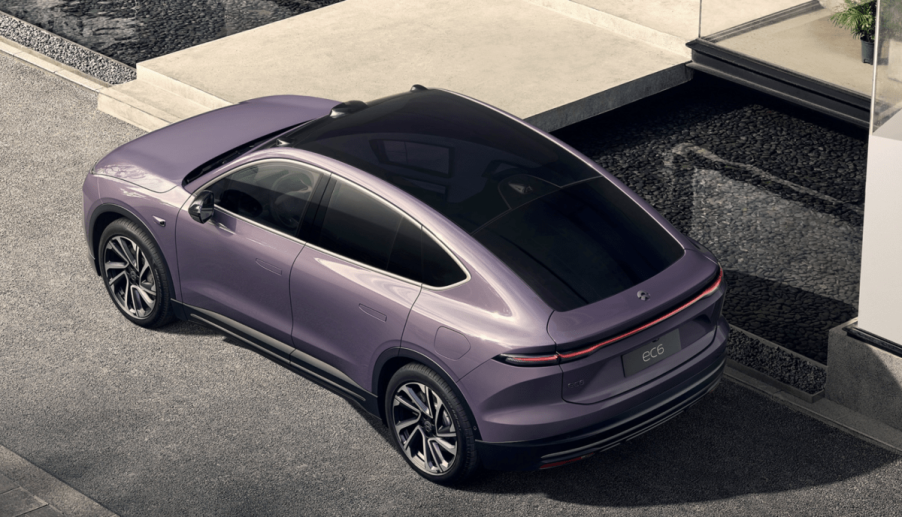
Premier Chinese Automaker Nio Plans U.S. Launch By 2025, Says CEO
The dirty little secret about the proliferation of Chinese-built EVs around the world is that they’re apparently well-made, contemporary, and affordable. But the whole issue of Chinese EVs coming to the U.S. has been a non-starter for several reasons. We’ll get into that in a moment, but the point is that these cars have the potential to disrupt the auto industry in America and that the certainty of them coming to America is at hand coming directly from automaker Nio’s CEO.
Does Nio sell cars in North America already?

At the Reuters Events Automotive USA 2023 conference, CEO Ganesh Iyer is looking at “any kinds of partnerships” in North America. But Nio is closer to North American partnerships, both figuratively and literally. Several Chinese EV manufacturers are selling their wares in Mexico. In fact, Chinese EVs amount to 20% of all new car sales there already. With Tesla and Kia making plans to manufacture there, it is inevitable that China will be looking to make cars in Mexico.
The same goes for Europe. Sales are so brisk that one in five EVs are Chinese imports. But that figure also includes companies like Tesla, which makes its Model 3 and Model X in China. Brussels is already looking to crack down on Chinese imports, saying that China is “subsidizing products in a way that harms European industry.”
What about U.S. and China relations?

Nio’s plans are to expand exporting EVs to an additional two dozen countries by 2025. And it says it wants to include the U.S. but won’t establish any manufacturing facilities here to participate in EV tax incentives. But minus that and the 27.5% tariff on Chinese cars, they may still be able to offer much more affordable EVs here.
Nio may have its plans, or should we say goals, but that might not translate into sales in America. We would be remiss not to include the saber-rattling over China in Congress. Relations with China are not good with the U.S., and the fear and resentment are only ramping up. Some states are restricting Chinese citizens and companies from owning land here.
Could Nio’s plans be affected by China’s aggression?

China continues to suggest it is planning on taking Taiwan back through military force if necessary. The West looks to that scenario as a threat to America’s interests, both here and there. So, from a geopolitical but also social standpoint, do Chinese-built EVs even stand a chance of selling here?
As China’s citizenry prospered over the past two decades, many U.S. and Japanese auto manufacturers set up shop there and did well. Buick still exists because of its overwhelming car sales in China. And Tesla has been making headlines for years over its factory and sales there. But China wasn’t standing on the sidelines.
What about dealer networks, advertising, and service?

Slowly, names like Nio, BYD, Xpeng, Chery, and more began ramping up their own manufacturing. Now, these nationalized brands are taking over, slowing down sales of both Japanese and American car sales. Both Jeep and Mitsubishi have already left the country, while the numbers keep shrinking for those foreign brands that remain.
Navigating the social, bureaucratic, safety mandates, and tariff issues is only the beginning for Chinese EVs to sell here. Setting up dealer networks, marketing, a sales force, and more means it will take billions of dollars and years before it can happen. So 2025 looks to be overly optimistic, but don’t underestimate China. Everywhere Chinese EVs are sold, they do very well.



